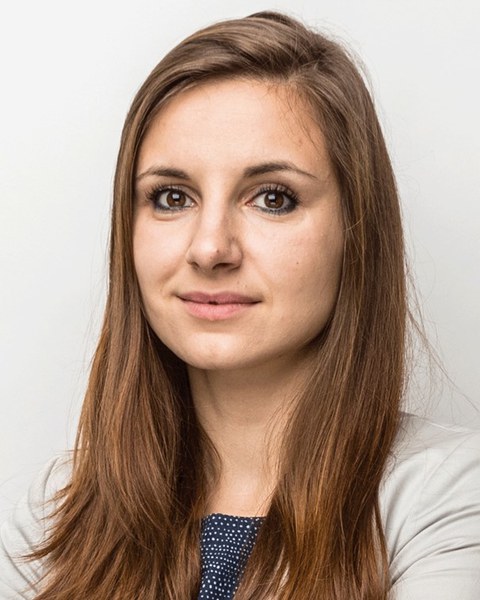Mar 15, 2022
TUD chemist Dr. Juliane Simmchen receives Carl Duisberg Memorial Prize
Dr. Juliane Simmchen from the Technische Universität Dresden will be awarded the prestigious Carl Duisberg Memorial Prize for her fascinating approaches in the field of active matter. The prize will be awarded by the German Chemical Society (GDCh) at the Chemistry Lecturers' Conference, which will be held in Saarbrücken from March 21 to 23. The GDCh Working Group of German University Professors of Chemistry (ADUC) invites university teachers of chemistry faculties from Germany and neighboring countries to the conference.
Dr. Juliane Simmchen receives this year’s Carl Duisberg Memorial Prize for her fascinating approaches in the field of active matter, which include creative use of photocatalytic nanoparticles, as well as enzymes, bacteria and hybrid systems to drive microswimmers. The selection committee particularly emphasized that the awardee's research has enabled her to succeed in a highly competitive and interdisciplinary field of work and to establish an independent and highly visible research program. For Dr. Simmchen, the award is particularly motivating: "For me as a chemist, it is incredibly great that our research field, which is dominated by physicists, is now also attracting interest from chemistry. I think there is still a lot of research to be done.”
Juliane Simmchen, who was born in 1986, studied chemistry at TU Dresden. After receiving her diploma in analytical chemistry in 2010, she earned her PhD in materials science at the Catalan Institute of Nanoscience and Nanotechnology (ICN2) at the Autonomous University of Barcelona in Spain in 2014. After stays at the MPI for Intelligent Systems, Stuttgart, and at the Centro Brasileiro de Pesquisas Físicas, Rio de Janeiro, Brazil, she returned to TU Dresden in 2016 as a research associate in materials science. Since November 2016, she has been a Freigeist Fellow there on the topic of 'Light driven microswimmers' in physical chemistry. With her research group, she explores colloidal materials and strategies to activate them. They construct so-called micromotors: small-scale structures made of synthetic and biological building blocks that can move autonomously and also explore how different environments, such as interfaces or applied stimuli, affect this movement.
The young scientist is fascinated by her field of research and would like to continue working creatively on the many undiscovered approaches in the future: "The microcosm is an incredibly exciting world that we are just discovering but also starting to use for ourselves. To do this, we need to rebuild our entire toolbox to be able to manipulate our colloids, but they certainly also have a lot of potential to tackle previously unsolved problems in a completely new way. “
About the GDCh and the Carl Duisberg Memorial Prize
The German Chemical Society (GDCh) is one of the largest chemical societies in the world with around 30,000 members. It has 27 specialist groups and awards numerous prizes for special achievements in chemical research. The Carl Duisberg Memorial Prize, which is endowed with 7500 euros, has been awarded since 1936 to young university teachers who work at a German university or as Germans at a foreign university, do not yet hold a W2/W3 or comparable position, and have not yet exceeded the age of 40. Of the prize money, 5000 euros go directly to the prize winner and the remaining 2500 euros to the working group.
More information on the Carl Duisberg Memorial Prize: https://en.gdch.de/index.php?id=4370&L=2

